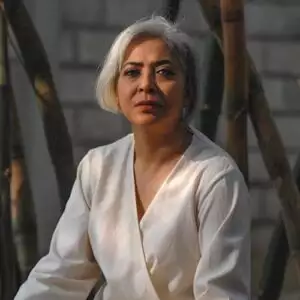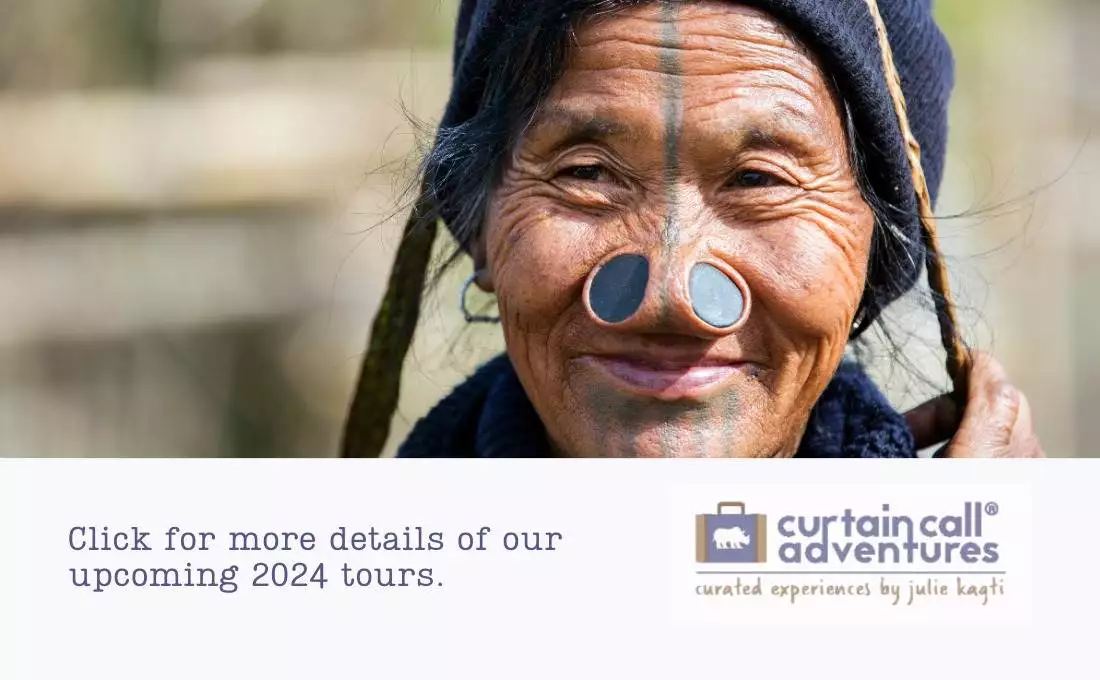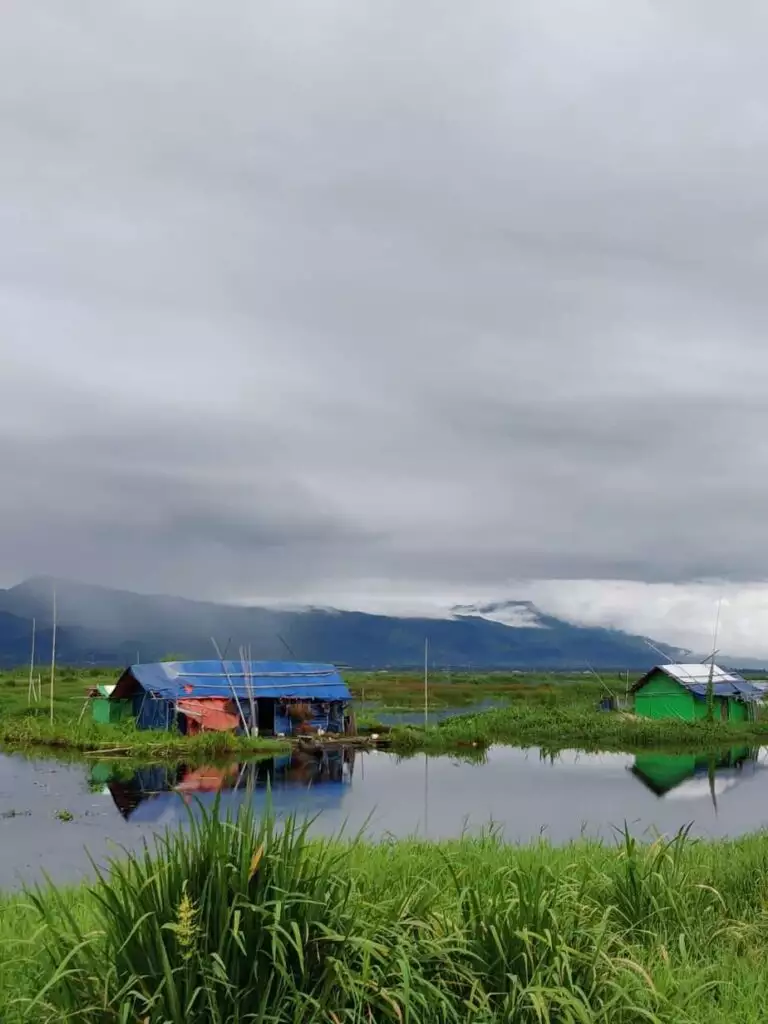
On a recce trip to Moirang district, Manipur in April 2018, my local partner there arranged for me to spend a night at a tiny guesthouse built on a floating Phumdis in the middle of the Loktak lake. He mentioned that it was a maiden venture and that I was going to be the first overnight guest. Exclusive to this lake, Phumdis are a series of floating islands, made up of a mix of mixed vegetation, soil and organic matter. There are a substantial number of them on the lake. Varying in size, the depth is about 7 to 9 feet.
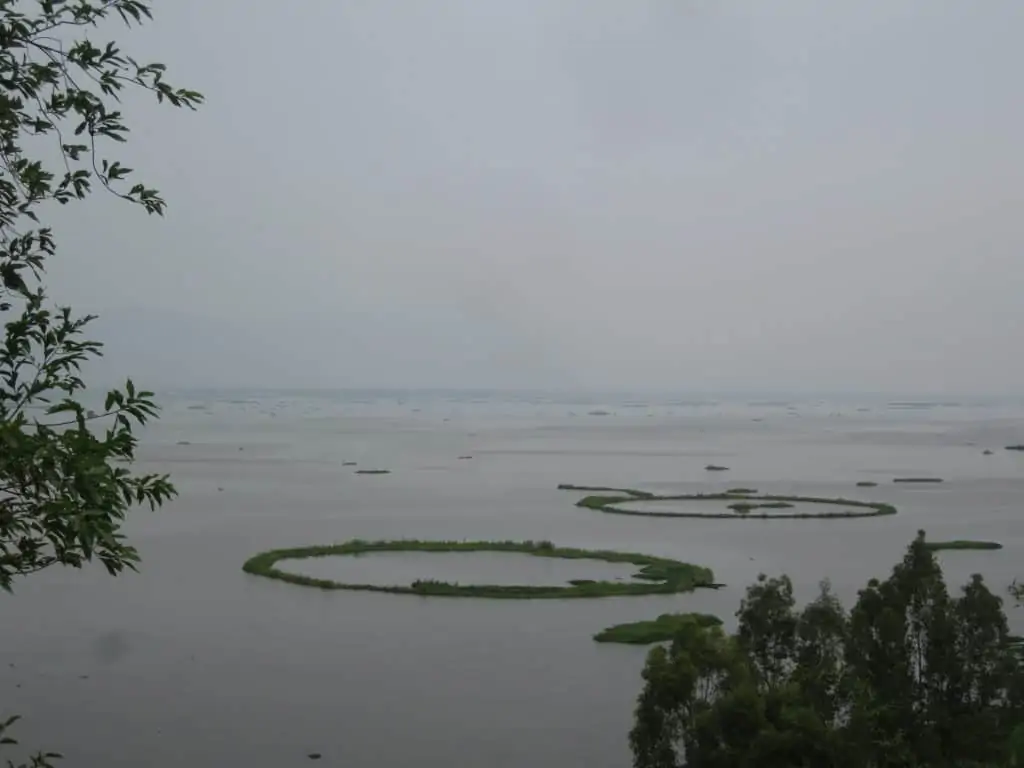
I had mixed feelings about being the first guest on a maiden project in the middle of the largest fresh water lake in the Northeast. When a friend mentioned that depending on wind speed I might wake up in a different part of the lake I did go ” hmmm” in my mind. More than a decade ago the government started to discourage people from actually living on the lake due to pollution levels and started clean up projects which are still on going. I wondered how opening guesthouses on the Phumdis was going to fit into the scheme of things.
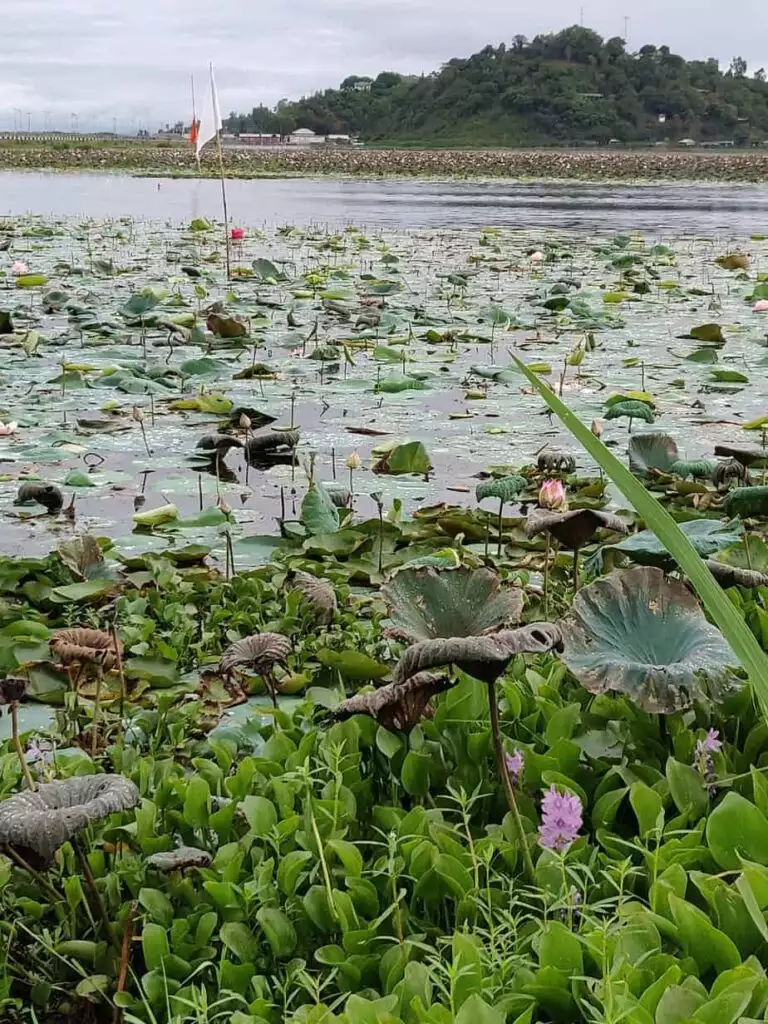
I met my host Bonbi a local fisherman at Thonga village where he was waiting along with his son and a member of the local tourism association to meet me near the community hall. The hillside slope of the village provided a lovely vantage spot to take in the views of the lake that provides income to the villagers who live around it. After the initial greetings I noticed Bonbi had a very pensive look on his face and was soon hurdded in conversation with the local representative, Mr Maipakchao.
Since I was a solo traveller and a woman, Bonbi decided that he was going to arrange from among his children and extended family a few companions to stay at the property with me. “To provide peace of mind to us both” is how he explained it. My five companions turned out to be of varying ages from six to eighteen. The youngest, Tiya decided to be my self appointed guided and refused to be left behind. She led me by hand and a charming smile to the boat indicating that I was to sit next to her.
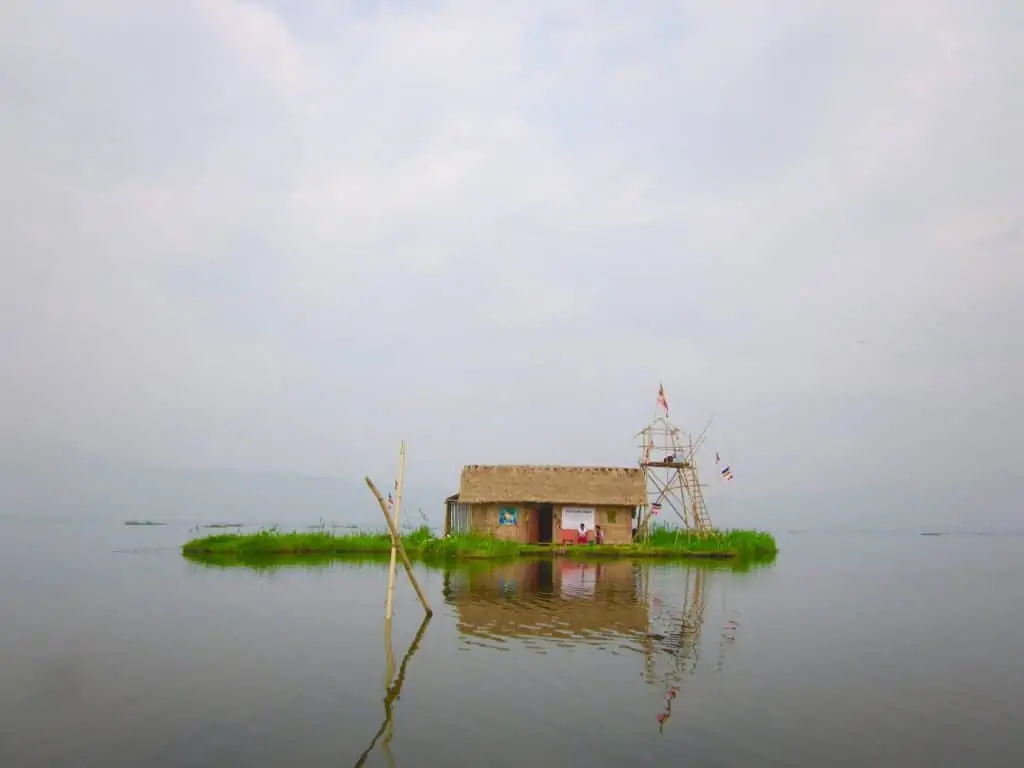
The hut was a small thatched three small room structure with a toilet. It had a small bamboo lookout built on the side which could be accessed by a bamboo ladder. The centre room was the kitchen set up on a wooden table and mats and cushions set up for dining. I was shown the bedroom closed to the toilet, which had a bed made up with fresh linen and mosquito net on the ground and a small table for luggage. My companions all huddled themselves into the second bedroom and when I volunteered to share my room with the three girls, they giggled and refused.
The length of the Phumdis we were on must have been fifteen meters approximately and the best I can describe walking on it is like stepping on a large rubber float in the middle of a lake. You can feel it move gently beneath your feet. Once my companions and I had settled down to conversations and selfies outside the hut Bonbi must have achieved his peace of mind. He bade me farewell and mentioned that he was coming early morning to take me for a ride on the lake.
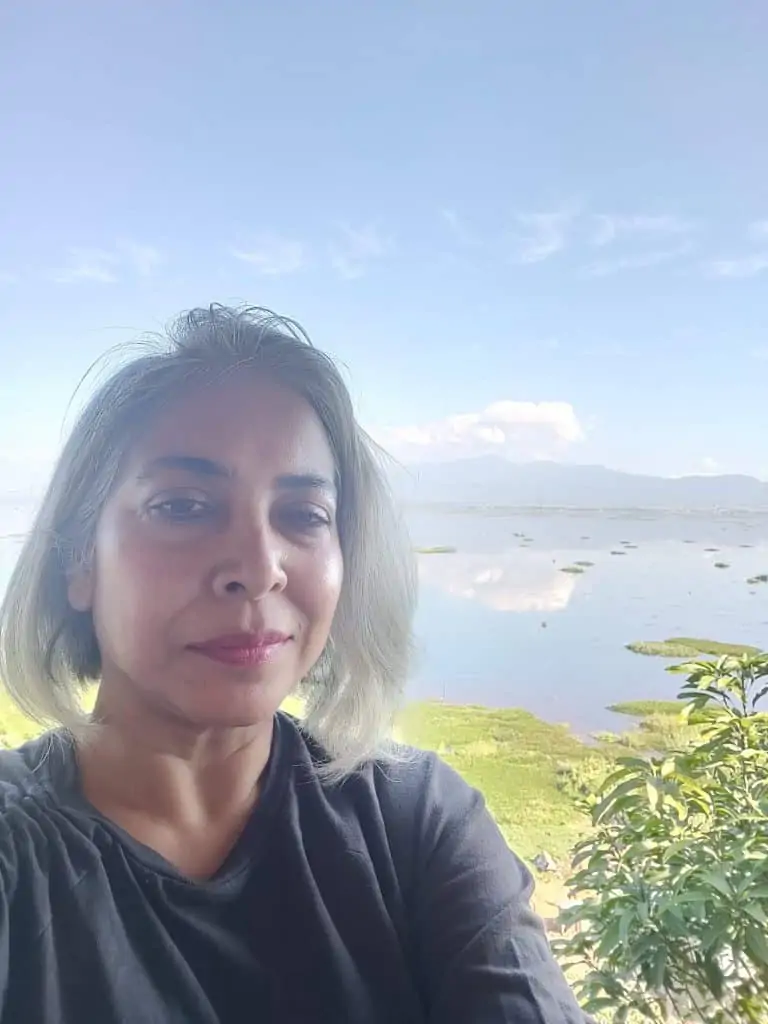
Heikhru, Hidonga and Hiyang Tanaba are two traditional boat races that happen in Manipur. The former is ritualistic and only takes place in the Bijoy Govinda Thangapat canal in Imphal. The other happens two or three times a year in different locations. Everyone joined in on our conversation when I bought up the topic of boat races. Thangal pulled out his phone and started showing me pictures of a particular race. After a little prompting from the rest he showed me a picture of his sister dressed in traditional attire leading a team and mentioned that she was one of the best racers. I expressed surprise that women raced too. Immediately as proof he called up his sister, who is studying at a university in Meghalaya and passed me the phone. A student of micro biology, she told me that she started handing a boat on her own by the age of eight as most kids around here do and expressed regret that now she didn’t a get chance to join in due to studies.
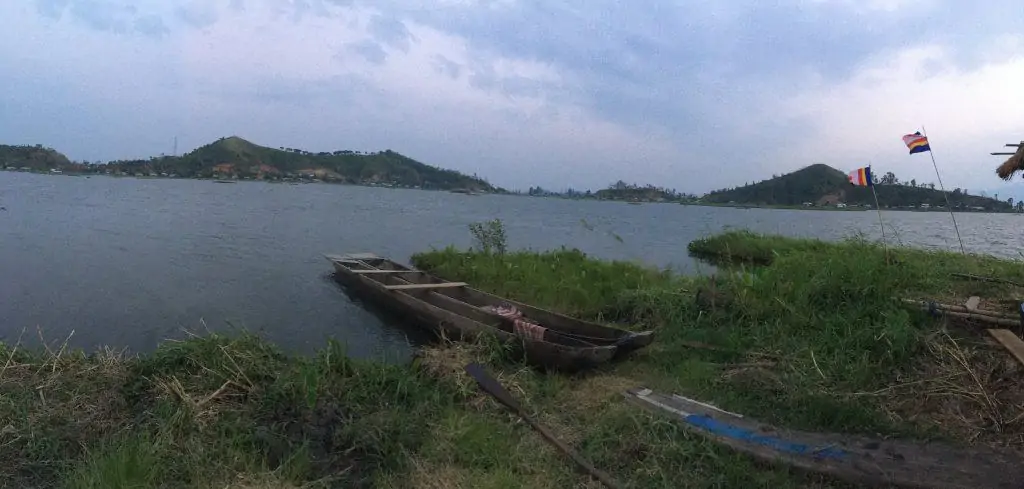
As night set in, a gentle breeze blew over the lake. The group slowly moved indoors to watch a movie on one of their phones and I pulled out my kindle to read an account of a traveller’s journey a century ago up the Mekong river in China. The lights of the distant shore blending in with the multitude of stars above was a perfect setting except for a few mosquitoes buzzing around. Around eight I stepped in to see if I could help with dinner and was told by Tiya that her aunty was going to bring it. I looked out at the pitch dark lake and wondered if I should have enquired earlier what the dinner arrangements were. A little while later Thangal started an animated conversation it someone which resulted in three of them rushing to the water front and shining their mobile torches. At a distance I caught a glimmer of a flickering light, which got brighter against the darkness. Soon I could make out the shape of a boat and two people rowing it. It was Thangal’s mother Meme and aunt. Between them, neatly arranged, were tiffin carriers of various sizes. We all helped unload the boat and I expressed my awe at their navigation skills and gratitude for dinner.
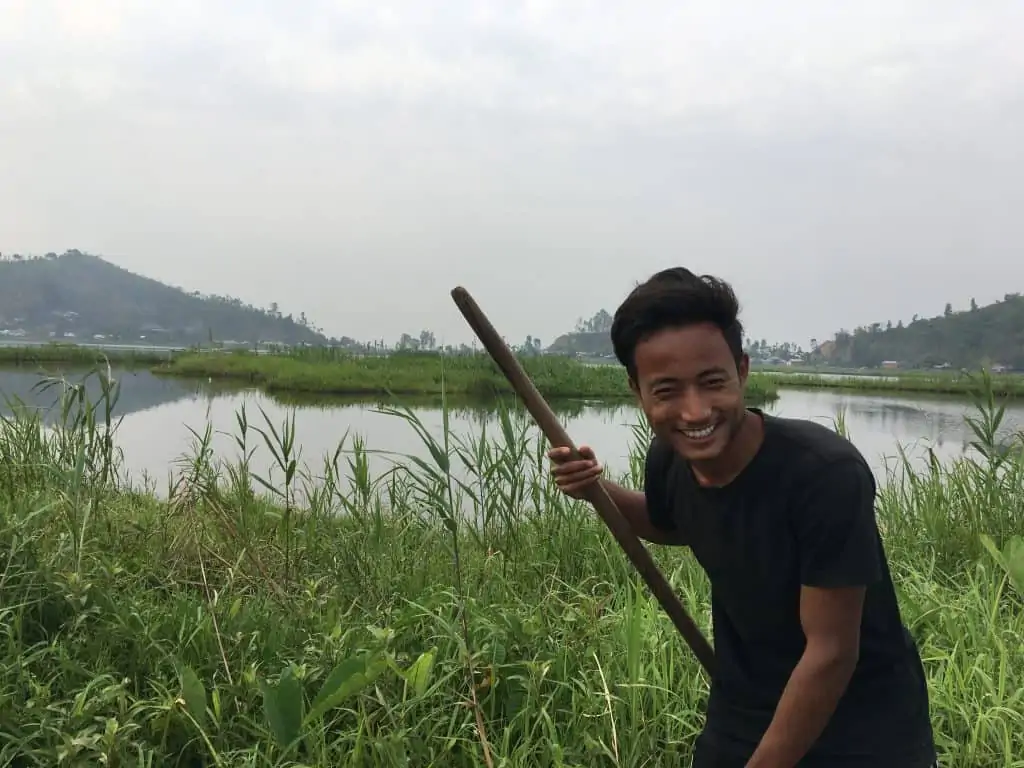
Over dinner while we all sat around in an informal circle the ice really melted. The two women only spoke in Meitei, the official language of the state. The youngsters were our translators. Over a tasty meal of rice, two types of fish – one a bit bony more like a pickle and the other a spicy curry, dal, vegetable and a salad we discussed a lot of topics – the logistics of building a hut on a Phumdis and looking after guest needs, water hyacinth basketry project started by the government, our families, life during the insurgency and how cut off Manipur was from the rest of the country during that time, Manipuri cuisines and their daily routines. Time flew as we chatted, laughed, took a bunch of really bad photos as the only light source was a hurricane lamp and our phone torches. The gently swaying of the Phumdis when the breeze blew and the sound of crickets is what I remember from that night while I lay down to sleep.
Both the ladies had looms set up in their homes and wove sporadically. I told them about my background in weaving and was invited by Meme to visit her home the next day before I left for Imphal. The boys loaded back all the tiffin carriers on to the boat and Meme and her sister in law bade us farewell before rowing off into the darkness.
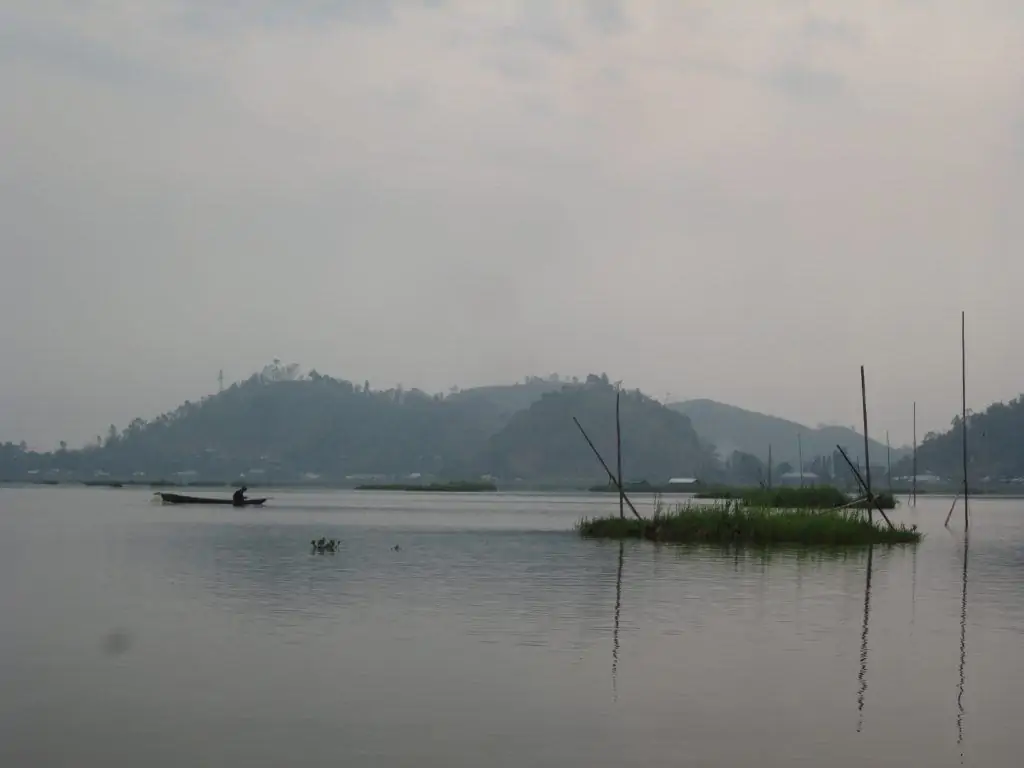
When I woke up at 5am I noticed the stillness and realised that my companions were still asleep. I stepped out to a misty lake and a smiling Bonbi sitting outside the hut. He said he didn’t want to disturb us as he had gathered from his wife that we were all up till late the night before. Soon everyone was up, drinking tea and the boys decided to takeme for a ride around the lake. Tiya joined in too.
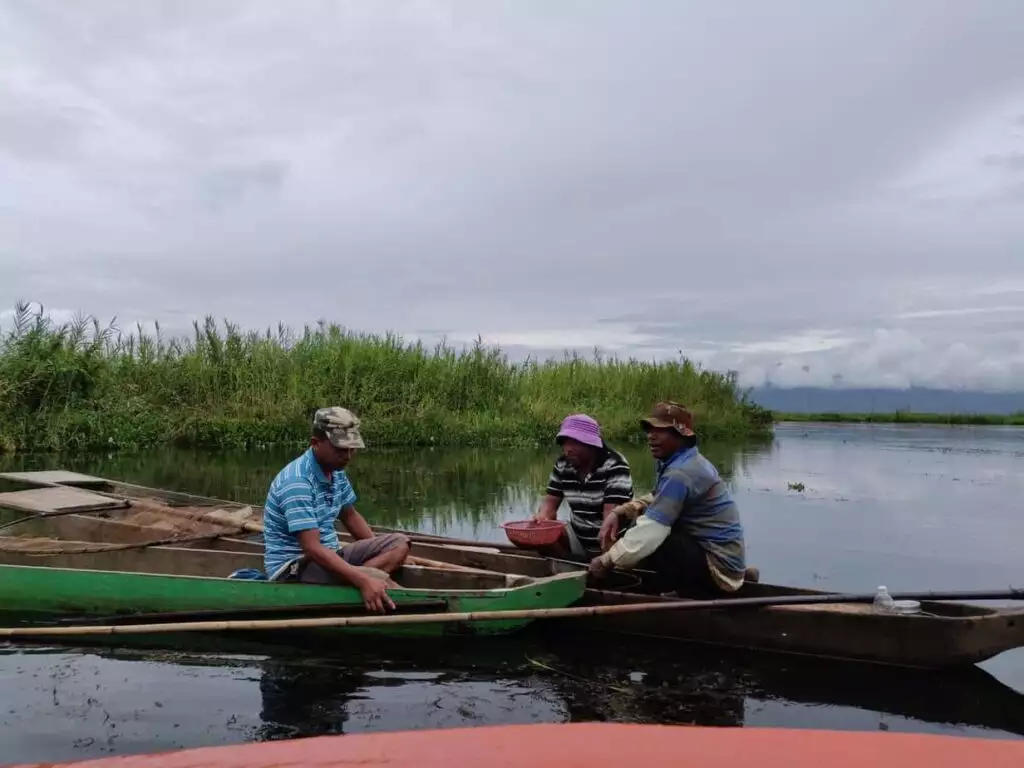
The mist was slowly rising and little fishing boats dotted the lake with fishermen busy with their nets. The lake is huge and we only covered a tiny portion in half an hour. So peaceful with the sun casting a pale silver light on to the lake and just the sound of the oars moving against the water. I expressed a desire to see one of the circular formations that the locals make with the Phumdis and realised once I got on to one that the strip is really narrow with a lot of wild weeds and alocasia growing on them. Alocasia is part of the local diet along with small fish. The girls had organised breakfast of boiled eggs, banana and slices of bread with jam along with a second round of tea. As we head back to shore, I pondered on what kind of traveller would I recommend for a night on a phumdis stay. Fishing enthusiast, writer or artist looking for inspiration, an adventurous couple maybe.
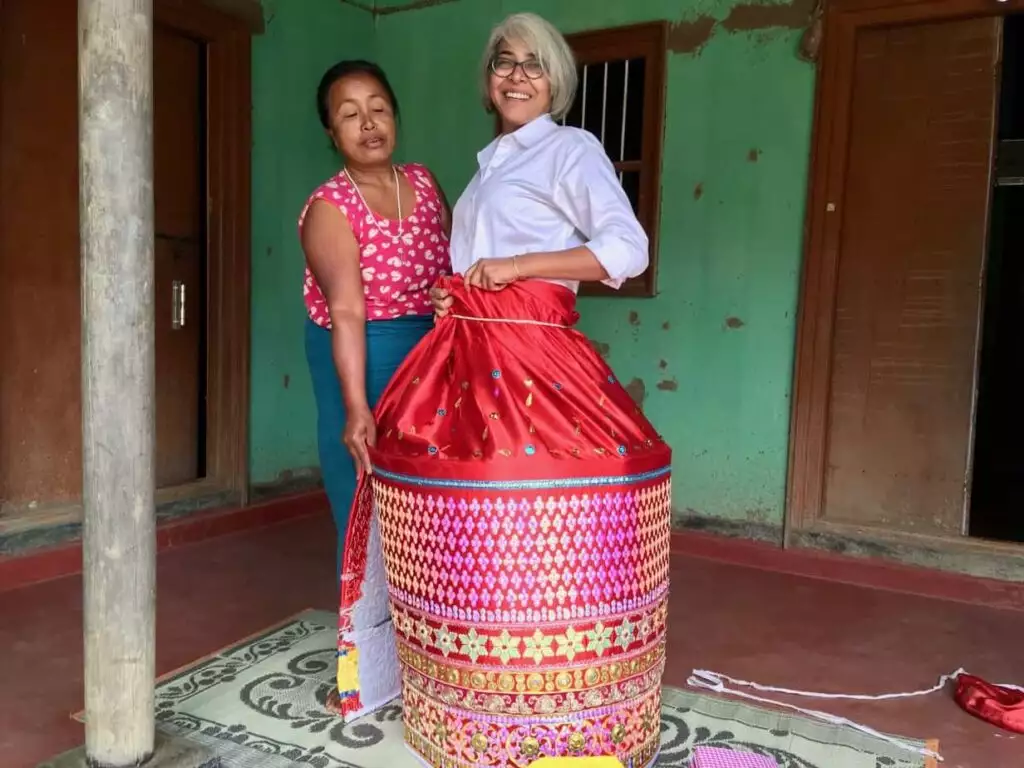
Meme’s sister in law, whose name escapes me was waiting with a stack of local checked gaumchas that she had woven in the courtyard of the house. Delightful in different colour combinations I had a hard time choosing a few to take back as gifts for my friends. Then Meme pulled out a bundle from inside the house and said it was her wedding outfit. My heart skipped a bit, as I realised I was in for a super treat. I loved dressing up as a child and even took dance classes in Jagoi, the Manipuri style of dance which requires the girls to wear the stiff skirt known as poltoi. My interest in the dance classes waned but not in the costume. I have seen many during performances but never in a someone’s home. She explained how as a young girl she chose the mithai pink colour and embellishments. It took her over three months to create it and now she sometimes loans it to brides who dont have time to make one of their own. She asked if I wanted to try it out and I did. The stiffness comes from attaching the fabric on to a thick rubber sheet. I told her that I had a textile trip coming up later in the year and could she make mini pouches using the same technique for my guests to which she agreed.
Nine months later Meme did a demonstration session on how to embellish a poltoi and brisk sales of products made from water hyacinth for the Rural Livelihood Community Project. Thangal now has travelled far away from the lake to Chandigarh for higher studies and we do have an occasional chat. No takers yet to spend the night over but now my guests regularly enjoy a traditional boat ride, occasionally fishing and a visit to Bonbi’s guesthouse for tea or lunch. An activity that is quite popular with guests as it lets them explore a way of life and interact with people who lead a way of life so varied from their own.
Images belong to Curtain Call Adventures.

